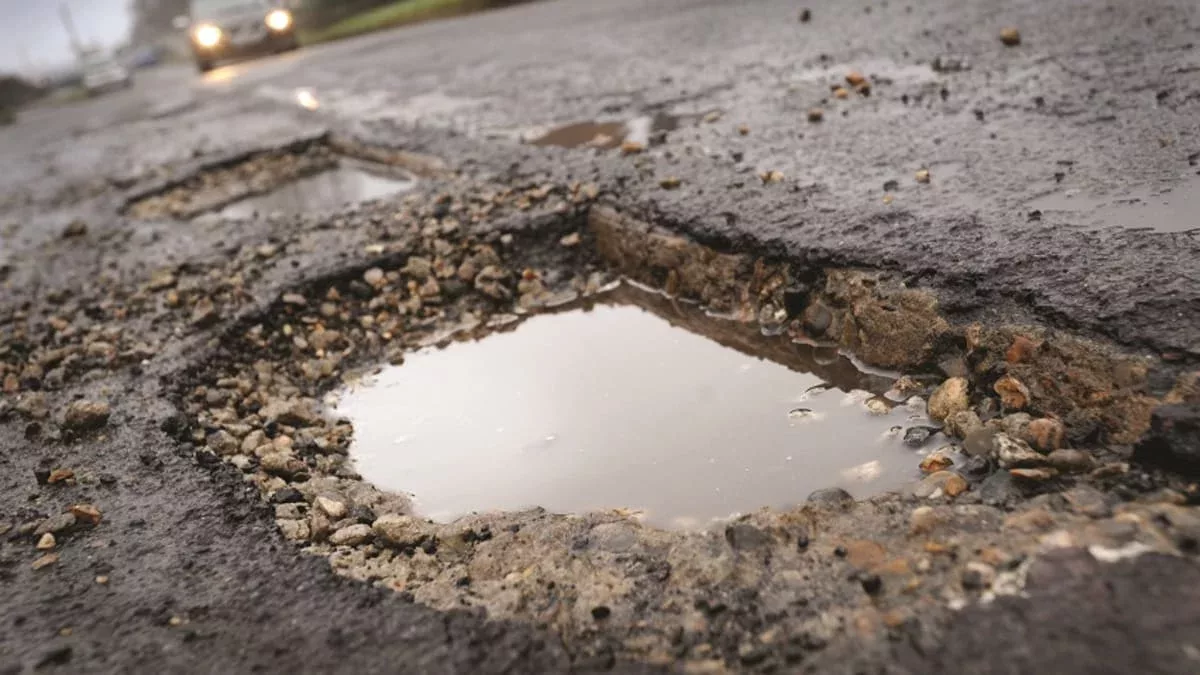The highways and transport technology industry has issued its reactions to Chancellor Jeremy Hunt’s measures in the budget which included £200 million for highways maintenance for the financial year 2023-2024.
The Department for Transport says it is committed to allocating this funding to local highways authorities so they can most effectively spend this funding on maintaining and improving their respective network, based upon their local knowledge, circumstances and priorities.
RAC head of roads policy Nicholas Lyes said: “While welcome, another £200m is unlikely to make a big difference to the overall quality of our dilapidated local roads. We need to significantly increase funding for local road maintenance and improvement so councils can resurface roads properly rather than patching them up and hoping for the best. Last year the Government spent £1.125bn on local roads in England which is in stark contrast to the £7bn that went into major roads from car tax, despite local roads covering so many more miles.”
Asphalt Industry Alliance Chair Rick Green commented: “The additional £200m one-off payment for local roads in England is welcome, but it’s a fraction of the amount local authorities have reported over decades that they need to keep their networks to target conditions, let alone tackle the backlog of carriageway repairs.
“The Chancellor is right to recognise that potholes on our local roads are a curse, but the key thing is they are not inevitable, they are the symptom off a network underfunded for many years. Unlike other transport networks, there is no visible long-term investment plan for local roads and without one, road users won’t see any real improvement in structural conditions on the roads they use every day and on which all other locally provided services rely.
“It will be interesting to see how the findings from our 2023 Annual Local Authority Road Maintenance (ALARM) survey Report, to be published next week, build on the previously reported trends between underfunding and the declining conditions of our local roads.”
Lorna Connelly, Head of Claims at Admiral, said: “We see more claims for pothole related damage in March than any other month. Cold weather conditions increase the chance of potholes so claims could be even higher than previous years., and with forecasters predicting a severe weather event at the start of the month similar to the one which caused the 2018 ‘Beast from the East’, this year is unlikely to be an exception. Cold weather conditions like these increase the chance of potholes so claims could be even higher than previous years.“Our data from the last six years reveal that January, February and March are the worst time of year for pothole claims, with over 36% of claims we receive made during these months. In fact, pothole related claims are 43% higher in these months than on average, as road surfaces become unsettled by colder temperatures.”
Meanwhile, looking at spending on technology, Max Sugarman, Chief Executive of ITS UK, said: “The Chancellor’s Budget sets out some positive news on AI, science and technology, all of which will support the UK’s ambitions to become a science superpower over the coming years. Transport can play a central role in this vision too – the UK is already home to a highly innovative intelligent transport sector, conservatively valued at £1.5bn, and with the potential to support £15bn in economic growth going forward.
“To unlock the full potential of the intelligent transport sector, the industry needs the right policy environment. This means the introduction a Future Transport Bill that supports new technologies like autonomous vehicles, drones, remote driving and e-scooters. It means shifting to a dynamic national pay-as-you-drive scheme that incentivises low carbon travel, and the roll out of smart ticketing on the rail and bus network. It requires the opening up of data from the transport network and the better integration of different transport modes, with support for Mobility as a Service schemes.
“Through investment in transport technology the UK can reduce carbon emissions, deliver more cost-effective capacity and improve safety, whilst also supporting a world-leading industry and the economic growth it provides.”
Beatrice Barleon, Head of Policy & Public Affairs at EngineeringUK, commented: “We welcome the Government’s ongoing commitment to make the UK a science and technology superpower and the ambitions of growing the economy, meeting our Net Zero targets, and unlocking the potential of every region. We also welcome the acknowledgement that to achieve this, businesses, including engineering and technology businesses, urgently need a larger skills and workforce base, now and in the future.”
“However, the measures on childcare as well as the focus on those over 50 will not, on their own, solve the wider skills and workforce shortages in the engineering and technology sector in the long-term. We urgently need greater investment in and focus on STEM education, STEM teachers, careers provision and vocational pathways for young people.”
“Our Fit for the Future Inquiry into engineering and technology apprenticeships will be reporting later this year and we hope to work closely with the Treasury to explore how they can support growth across the engineering profession.”
Fuel duty was frozen, while corporation tax rises significantly from 19 to 25%. Giving a business reaction, Barney Goffer, UK Product Manager at Teletrac Navman UK said: “The Chancellor’s Spring Budget held some interesting and welcome elements for fleet operators and construction businesses.
“As predicted, the 5p fuel tax cut that was announced as a 12-month measure was upheld and there was also a continued freeze on the increase in fuel duty. And with the announcement that the OBR is predicting inflation will fall from 10.7% to 2.9% by the end of 2023, the pain of pump prices should continue to reduce. For the general public this is a saving of £100 a year on average, so the savings for fleets and equipment operators should be comparable.
“Corporation tax rise is indeed rising, from 19% to 25% but with a tiered approach the Chancellor has suggested that only 10% of UK businesses will be paying the full 25%. This is because the Chancellor was adamant this was a budget for growth and investment is key to that.
“While the Super-Deduction tax relief is indeed going, the Chancellor is introducing a new policy of full capital expensing for the next three years, meaning every pound invested in tech, plants, or machinery is fully deductible from taxable profits.
“While ‘plant and machinery’ needs more definition – for instance, are mobile assets considered machinery – this is an extremely important point for fleets looking to expand, replace fleet, switch from ICE to EV, or digitally transform operations.
“While we await the finer details, the initial signs in the Chancellor’s speech are potentially positive for the UK’s transport and construction sectors.”
(File picture – RAC)





















